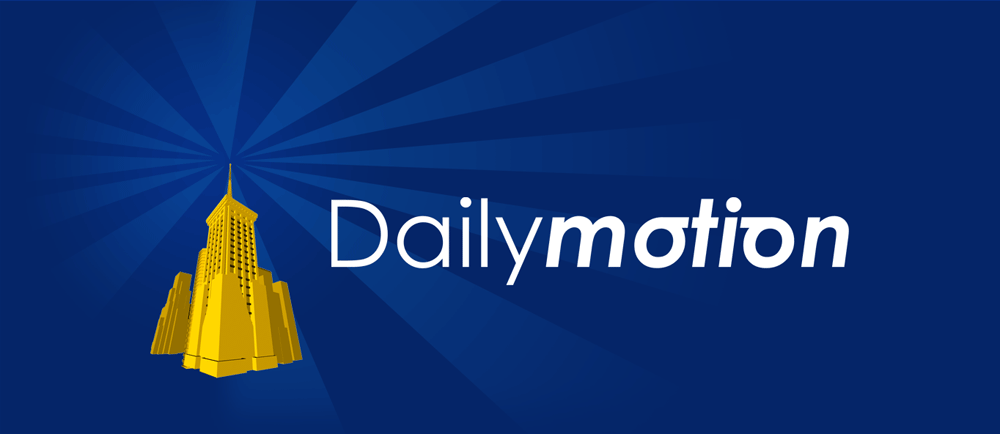Dailymotion is a popular video-sharing platform that allows users to upload, share, and view a wide range of video content. Founded in 2005 in France, it has grown to become one of the world's largest video-sharing websites, rivaling platforms like YouTube. Users can find everything from music videos and user-generated content to news and educational videos. With its user-friendly interface and a vast array of videos available in various genres, Dailymotion serves as a hub for video enthusiasts and creators alike.
Unlike some of its competitors, Dailymotion focuses on promoting quality content over sheer quantity, providing an avenue for professional content creators and brands to reach their audience effectively. In recent years, Dailymotion has also made strides to ensure content is properly categorized, making it easier for users to discover videos that interest them. However, as with any platform that allows user-generated content, questions arise concerning the legality of the material uploaded. Understanding these aspects and the platform's commitment to copyright laws is essential for users and creators alike, which we'll delve into below.
Understanding Copyright Laws

Copyright laws play a significant role in the world of digital content, especially in platforms like Dailymotion. These laws exist to protect the rights of creators, ensuring that their original works cannot be used or reproduced without their permission. Essentially, copyrights grant the creator exclusive rights to their content, enabling them to profit from their intellectual property.
Here are some key aspects of copyright laws that are relevant to Dailymotion:
- Exclusive Rights: Copyright holders have the right to reproduce, distribute, and publicly display their works. This means that any video uploaded without the necessary permissions could infringe upon these rights.
- Fair Use: In some cases, using copyrighted material without permission may be permissible under the doctrine of fair use. This typically applies to commentary, criticism, or educational use, but the boundaries can be blurry. For example, short clips used for review purposes may fall under fair use, while entire videos usually do not.
- DMCA Takedown Notices: The Digital Millennium Copyright Act (DMCA) provides a mechanism for copyright holders to request the removal of infringing content from platforms like Dailymotion. Dailymotion has procedures in place to comply with DMCA notices, highlighting its commitment to copyright protection.
- User Responsibilities: Users of Dailymotion must be aware of the copyright implications of the content they upload. It’s vital to only upload videos that they have created or have received permission to share.
In conclusion, understanding copyright laws is crucial for anyone engaging with platforms like Dailymotion. Not only does it safeguard the rights of original creators, but it also protects users from potential legal issues. It’s a delicate balance between freedom of expression and respecting intellectual property, and navigating this landscape requires awareness and responsibility.
Also Read This: Mastering the Smokey Eye Makeup Technique with Dailymotion Video Tips
Dailymotion's Content Policies

Dailymotion is a popular video-sharing platform that hosts a plethora of user-generated content. However, like any other reputable site, Dailymotion has established specific content policies to ensure a safe and legal environment for its users. Let's delve deeper into what these policies entail.
First and foremost, Dailymotion has a clear set of guidelines regarding the type of content that can be uploaded. These policies are designed to prevent illegal or inappropriate material from being shared on the platform. Here are some key points:
- Copyrighted Material: Users cannot upload content that infringes on the copyright of others without proper authorization.
- Violence and Hate Speech: Content showcasing violence, hate speech, or harassment is strictly prohibited.
- Nudity and Sexual Content: Dailymotion limits sexually explicit content and regulates nudity to maintain a family-friendly atmosphere.
- Spam and Misinformation: The platform enforces strict measures against spam, misleading content, and phishing attempts.
Furthermore, Dailymotion emphasizes the importance of community guidelines. They encourage a respectful and engaging environment, motivating users to report inappropriate content. By doing so, Dailymotion aims to foster a sense of responsibility and collaboration among its community.
In summary, Dailymotion’s content policies are structured to maintain a safe, legal, and enjoyable experience for users. When users adhere to these guidelines, everyone can enjoy the rich variety of videos that Dailymotion offers.
Also Read This: How to Download a Video from Dailymotion Using Firefox
How Dailymotion Handles Copyright Infringement

Copyright infringement is a significant concern for any platform that allows user-generated content, and Dailymotion is no exception. The site has established robust procedures to handle copyright issues effectively and ensure compliance with international copyright laws.
When it comes to tackling potential copyright violations, Dailymotion utilizes a systematic approach:
- Notice-and-Takedown System: Dailymotion adheres to the principles of the Digital Millennium Copyright Act (DMCA). This means that copyright holders can send a formal notice if they believe their work has been infringed. Dailymotion responds by reviewing the notice and removing the alleged infringing material if warranted.
- Content ID System: The platform often employs content recognition technology that automatically detects copyrighted material being uploaded. If such content is identified, Dailymotion can take action preemptively to prevent further infringements.
- User Education: Dailymotion provides resources and guidance on copyright laws to educate users about the importance of respecting intellectual property. This proactive approach aims to reduce the instances of unintentional infringement.
- Three-Strikes Rule: Repeat offenders who continually violate copyright policies may face account suspensions or terminations, ensuring that the platform maintains its commitment to copyright compliance.
In conclusion, Dailymotion takes copyright infringement seriously and has set up various mechanisms to safeguard against such violations. Their efforts not only protect creators' rights but also help ensure that users can continue to share and enjoy a diverse range of content within a legally responsible framework.
Also Read This: Don’t Be Tardy for the Wedding on Dailymotion: Watch the Show
Comparative Analysis with Other Video Platforms

When it comes to online video-sharing platforms, Dailymotion often gets overshadowed by giants like YouTube and Vimeo. But how does it really stack up against these competitors? Let’s break it down.
- User Base: YouTube reigns supreme with over 2 billion monthly active users, while Dailymotion boasts around 250 million monthly visitors. Though smaller, Dailymotion has carved out a niche with its unique content offerings.
- Monetization: YouTube provides extensive advertising options for content creators, which can lead to significant earnings. Dailymotion also allows monetization, but its revenue-sharing model may not be as robust as YouTube’s, making it less attractive for some creators.
- Content Policies: Both Dailymotion and YouTube have strict content guidelines, but Dailymotion's enforcement is sometimes perceived as more lenient, leading to a unique variety of content that may not be found on more regulated platforms.
- Video Quality: Both platforms support high-definition video, but Vimeo is often preferred by professionals for its superior quality settings and customization options. Dailymotion, on the other hand, offers a balance of quality and accessibility for casual users.
- Geographical Reach: While YouTube is accessible almost everywhere globally, Dailymotion tends to perform better in specific regions, particularly in Europe. This global reach can influence where creators choose to host their content.
In summary, Dailymotion brings a different flavor to the table compared to its competitors. It’s not just a smaller version of YouTube; it has its unique strengths and challenges that appeal to various user segments.
Also Read This: How to Make a 16-Pointed Ninja Star: Dailymotion’s Crafting Tutorial
Legal Issues and Controversies Surrounding Dailymotion
While Dailymotion offers a platform for creative expression, it hasn’t been without its share of legal issues and controversies. Let's dive into some of the most notable ones.
| Issue | Description |
|---|---|
| Copyright Violations | Dailymotion has faced numerous claims regarding copyright infringement, especially concerning the uploading of pirated content. While the platform actively removes flagged videos, it has struggled to fully eradicate this problem. |
| Content Moderation | The effectiveness of Dailymotion's content moderation system has come under scrutiny. Users often report inappropriate content that remains visible longer than it should, prompting questions about the platform's commitment to maintaining a safe environment. |
| Data Privacy | Like many online platforms, Dailymotion must navigate complex data privacy laws. Incidents regarding user data mishandling have raised alarms, making users cautious about sharing personal information. |
| Censorship Concerns | There have been incidents where Dailymotion has removed content due to political pressure, leading to debates about censorship and free speech on the platform. |
In conclusion, while Dailymotion provides valuable service in the realm of video sharing, it's essential to recognize these legal challenges. Users and creators alike must be aware of the platform's intricacies to navigate it successfully.
Is Dailymotion a Legal Website? Exploring the Legal Aspects of Dailymotion
Dailymotion is a popular video-sharing platform that allows users to upload, share, and view videos. However, the question of its legality often arises, particularly due to the content that can be found on the site. To understand the legal framework of Dailymotion, it's essential to consider various aspects such as copyright laws, community guidelines, and user responsibilities.
Here are some key points regarding the legal aspects of Dailymotion:
- Copyright Policy: Dailymotion adheres to strict copyright laws. Users must own the rights to the videos they upload, or have permission from the copyright holders. The platform employs a Content ID system that helps identify copyrighted material.
- Content Moderation: Dailymotion has community guidelines that prohibit the upload of illegal content, including hate speech, pornography, and violent material. The platform actively moderates content to maintain a safe environment.
- Reporting Mechanism: Users can report videos that violate Dailymotion's terms of service. This mechanism helps to ensure that inappropriate or illegal content is quickly addressed.
- Licensing Agreements: Dailymotion often collaborates with content creators and copyright holders through licensing agreements, allowing the platform to legally host and stream specific content.
- International Regulations: The legality of content on Dailymotion may vary by region, depending on local copyright laws and regulations.
In conclusion, while Dailymotion operates within a legal framework, users must exercise caution and ensure they are adhering to copyright laws and platform guidelines. Engaging with content responsibly can help maintain a safe and legal viewing experience.
 admin
admin








